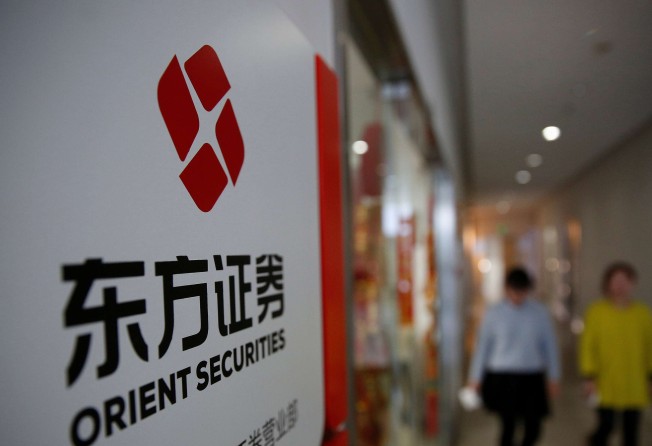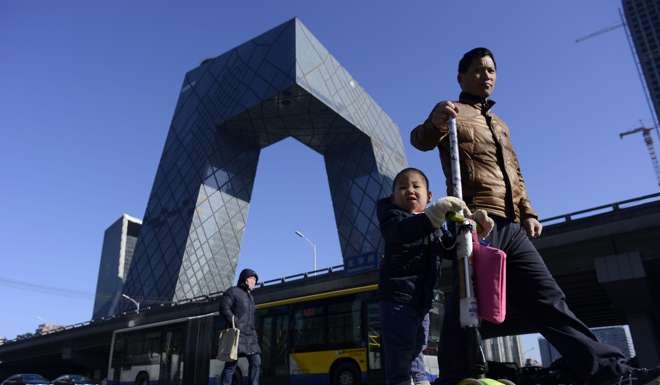Listed mainland companies find unique way to boost earnings
Data provider Wind Information says 767 mainland-listed companies, invested a combined 763bn yuan into wealth management products in 2016, up 39pc

Mainland companies are using their idle capital to invest in the stock market in the hope of super-charging their earnings, raising concerns that the funds they raise through IPOs and share placements are not being channelled into their businesses in a proper way.
According to Shanghai-based data provider Wind Information, 767 mainland-listed companies, equivalent to more than a fourth of all stocks traded on the Shanghai and Shenzhen stock exchanges, invested a combined 763 billion yuan into wealth management products in 2016, up 39 per cent from a year earlier.
“Investors are given a rude reminder again that money given to public firms to enhance corporate performance hasn’t been properly utilised,” said Zhou Lin, a hedge fund manager at Shanghai Shiva Investment. “The need for cash doesn’t necessarily mean that companies are determined to fine-tune operations.”
Among the 763 billion yuan capital, 58 per cent was derived from the proceeds raised via initial public offerings (IPOs) or share placements, Wind said.
The return rates for the wealth management products are still unknown before the companies publish their full-year earnings reports for 2016.
Wealth management products refer to investment products issued by banks, hedge funds, mutual funds, brokerages and trust firms, which are normally invested in financial assets or lent to corporate borrowers at a lofty interest rates higher than bank loans.
The 767 listed companies bought 552.6 billion yuan worth of wealth management products issued by commercial banks, or 72 per cent of the 763 billion yuan invested by listed firms in the financial products.

Wealth management products provided by mainland banks are a major part of the shadow banking system.
The finding is an embarrassment to financial regulators who have long encouraged stock market fundraising to support the real economy.
Since the incumbent leadership took office in late 2012, Beijing has been underscoring the importance of fundraising on the stock market amid its efforts to de-leverage an economy saddled with high debt.
Recently the China Securities Regulatory Commission (CSRC) has fast-tracked approvals for new share sales and refinancing deals to enable companies to tap the capital markets.
In 2016 listed companies netted about 1.5 trillion yuan of fresh funds via share placements while a total 138.1 billion yuan of capital was raised through 248 IPOs.
That ranks as the third busiest year on record in terms of the number of IPOs, trailing the 347 in 2010 and 277 in 2011.
New share offers have drawn strong interest from investors, with the result that heavily oversubscribed offers are priced at the higher end of expectations. The buoyant market has also seen ideal conditions for new share placements.
Funds are supposed to be raised to support listed firms’ core businesses. As prices are set at an unreasonably high level, it’s unfair to retail investors although they are keen on speculating on the newly listed shares
During the first half of 2010, the 100-odd startup firms listed on the Nasdaq-style ChiNext market used only a tenth of the total proceeds to fund their own growth.
At that time, the Shenzhen Stock Exchange required small companies to disclose their detailed plans for the use of the extra funds.
“Funds are supposed to be raised to support listed firms’ core businesses,” said Haitong Securities analyst Zhang Qi. “As prices are set at an unreasonably high level, it’s unfair to retail investors although they are keen on speculating on the newly listed shares.”
The CSRC is likely to accelerate the pace of IPO approvals in 2017 as about 600 listing applicants are awaiting the green light to raise funds.
However, It remains to be seen whether the regulator would begin implementing a long-heralded registration-based IPO system to ease companies’ fundraising this year.
Normally, buoyant IPO activities could have a negative impact on the market as fresh equity influx siphon off funds from existing holdings.